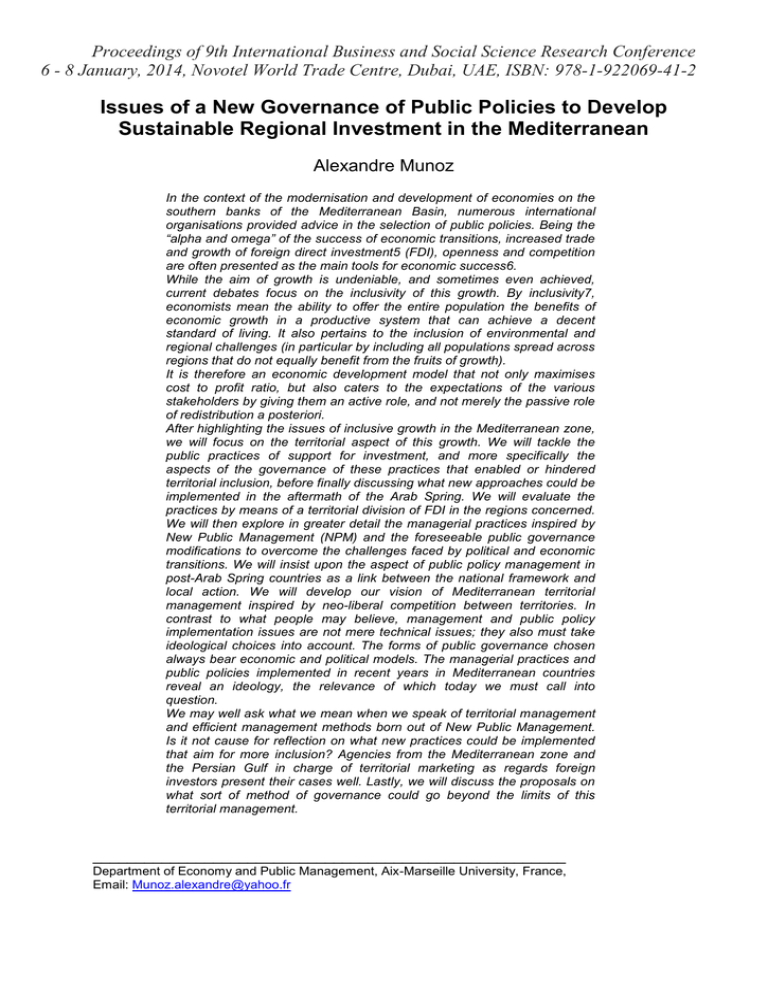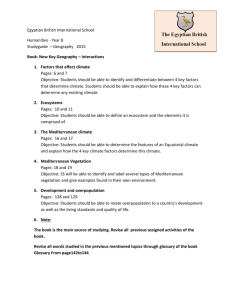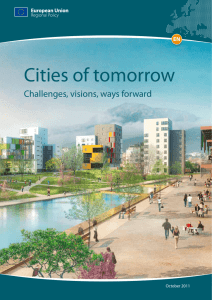Proceedings of 9th International Business and Social Science Research Conference
advertisement

Proceedings of 9th International Business and Social Science Research Conference 6 - 8 January, 2014, Novotel World Trade Centre, Dubai, UAE, ISBN: 978-1-922069-41-2 Issues of a New Governance of Public Policies to Develop Sustainable Regional Investment in the Mediterranean Alexandre Munoz In the context of the modernisation and development of economies on the southern banks of the Mediterranean Basin, numerous international organisations provided advice in the selection of public policies. Being the “alpha and omega” of the success of economic transitions, increased trade and growth of foreign direct investment5 (FDI), openness and competition are often presented as the main tools for economic success6. While the aim of growth is undeniable, and sometimes even achieved, current debates focus on the inclusivity of this growth. By inclusivity7, economists mean the ability to offer the entire population the benefits of economic growth in a productive system that can achieve a decent standard of living. It also pertains to the inclusion of environmental and regional challenges (in particular by including all populations spread across regions that do not equally benefit from the fruits of growth). It is therefore an economic development model that not only maximises cost to profit ratio, but also caters to the expectations of the various stakeholders by giving them an active role, and not merely the passive role of redistribution a posteriori. After highlighting the issues of inclusive growth in the Mediterranean zone, we will focus on the territorial aspect of this growth. We will tackle the public practices of support for investment, and more specifically the aspects of the governance of these practices that enabled or hindered territorial inclusion, before finally discussing what new approaches could be implemented in the aftermath of the Arab Spring. We will evaluate the practices by means of a territorial division of FDI in the regions concerned. We will then explore in greater detail the managerial practices inspired by New Public Management (NPM) and the foreseeable public governance modifications to overcome the challenges faced by political and economic transitions. We will insist upon the aspect of public policy management in post-Arab Spring countries as a link between the national framework and local action. We will develop our vision of Mediterranean territorial management inspired by neo-liberal competition between territories. In contrast to what people may believe, management and public policy implementation issues are not mere technical issues; they also must take ideological choices into account. The forms of public governance chosen always bear economic and political models. The managerial practices and public policies implemented in recent years in Mediterranean countries reveal an ideology, the relevance of which today we must call into question. We may well ask what we mean when we speak of territorial management and efficient management methods born out of New Public Management. Is it not cause for reflection on what new practices could be implemented that aim for more inclusion? Agencies from the Mediterranean zone and the Persian Gulf in charge of territorial marketing as regards foreign investors present their cases well. Lastly, we will discuss the proposals on what sort of method of governance could go beyond the limits of this territorial management. _______________________________________________________ Department of Economy and Public Management, Aix-Marseille University, France, Email: Munoz.alexandre@yahoo.fr



